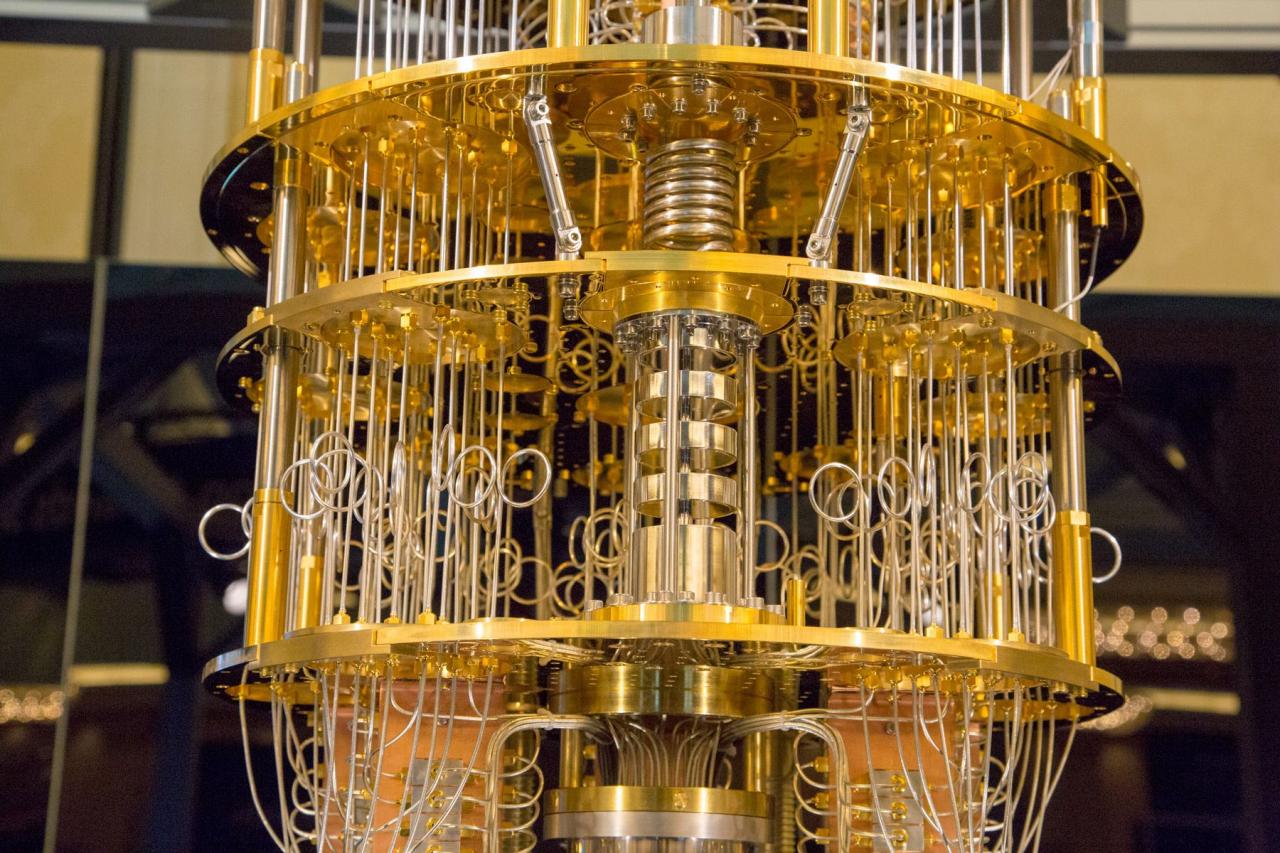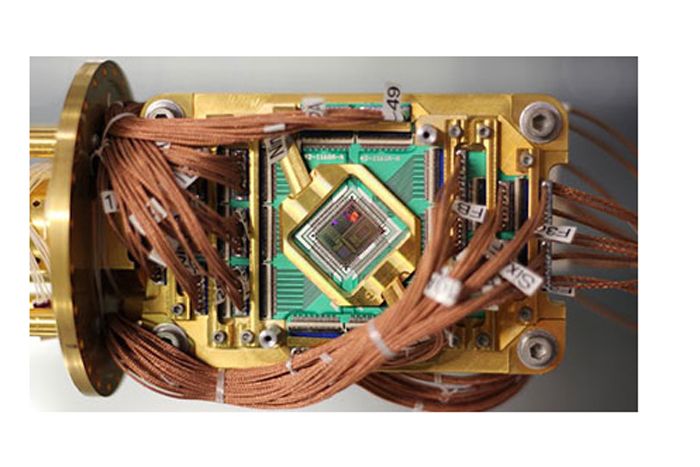For decades, it has been the stuff of science fiction, a theoretical frontier confined to heavily funded laboratories and the pages of academic journals.
The promise of quantum computing—harnessing the bizarre laws of quantum mechanics to achieve computational power unimaginable with classical machines—has always been a tantalizing “what if.”
Today, on October 4, 2025, the conversation shifts from “if” to “now.” The era of commercial quantum computing has officially begun.
This isn’t the arrival of a quantum laptop on store shelves.
It is something far more significant. This week, industry pioneer Xanadu, in partnership with major cloud providers, announced that its “Borealis” quantum processing unit (QPU) has achieved a state of sustained “quantum advantage” on a series of commercially relevant problems.
For the first time, businesses can now access a fault-tolerant quantum system via the cloud that can solve specific, complex calculations faster, more efficiently, and more accurately than the world’s most powerful supercomputers.
This is not a mere academic milestone; it is a commercial debut that serves as the starting gun for a multi-trillion-dollar industrial revolution.
The impact of this moment will ripple across every major sector, from finance and medicine to artificial intelligence and national security.
This article will break down what this breakthrough truly means, explore the core concepts behind this powerful technology, and analyze the industries that are now on the brink of unprecedented transformation. The digital age gave us information.
The quantum age promises to give us understanding.
A Primer: What Exactly Is Quantum Computing?
To grasp the magnitude of this moment, it’s essential to understand how fundamentally different quantum computers are from the classical computers in our homes and pockets.
A classical computer, at its core, is a machine of absolutes. It stores information in “bits,” which can only exist in one of two states: a 0 or a 1, like a light switch that is either off or on.
Quantum computers operate on a different set of rules, leveraging the strange and wonderful principles of quantum mechanics.
A. Qubits
Instead of bits, quantum computers use “qubits.” A qubit is not limited to being just a 0 or a 1. Thanks to a principle called superposition, it can be a 0, a 1, or a probabilistic combination of both states simultaneously.
Think of it not as a light switch, but as a dimmer switch, able to represent a whole spectrum of values at once.
This ability to hold multiple values simultaneously is the source of a quantum computer’s immense processing power.
B. Entanglement
This is what Albert Einstein famously called “spooky action at a distance.” When two qubits are entangled, their fates are intrinsically linked, no matter how far apart they are.
Measuring the state of one qubit instantly influences the state of the other.
By entangling qubits, quantum computers can create complex, multi-dimensional computational spaces to solve problems that are exponentially too large for classical computers to handle.
The challenge, until recently, has been controlling these fragile quantum states.
Qubits are incredibly sensitive to environmental “noise” like temperature fluctuations or vibrations, which can destroy the quantum information in a process called decoherence.
The breakthrough of the “Borealis” system is its advanced error-correction and fault-tolerance, allowing it to perform meaningful calculations for sustained periods—the key to unlocking its commercial viability.
The Commercial Revolution: Industries on the Brink of Change

With the arrival of commercially viable quantum computing, the theoretical becomes practical.
For years, industries have faced computational walls—problems so complex that even with Moore’s Law, they would take thousands of years to solve.
The quantum era tears down these walls. Here are the sectors that will be transformed first.
A. Pharmaceuticals and Materials Science
The End of Trial and Error The development of new drugs and materials has long been a process of slow, expensive trial and error.
To create a new life-saving medication, chemists must understand how a potential drug molecule will interact with proteins in the human body.
Simulating these interactions accurately is a staggeringly complex problem, as the quantum-level behavior of even a simple molecule is beyond the capacity of classical supercomputers.
Quantum computing changes this entirely.
A fault-tolerant QPU can simulate molecular interactions with perfect accuracy because it operates on the same quantum principles as the molecules themselves.
This will allow pharmaceutical companies to:
- Design new drugs from the ground up with unprecedented speed, targeting diseases like Alzheimer’s, cancer, and cystic fibrosis.
- Develop novel materials with specific properties, such as more efficient catalysts for green energy production, better batteries, or room-temperature superconductors. This represents a shift from discovery by chance to design by intention.
B. Finance and Investment
Perfecting Prediction and Risk The global financial system is a massive, chaotic network of variables.
Investment banks and hedge funds spend billions on supercomputers to run complex simulations, such as Monte Carlo models, to price exotic financial derivatives and assess portfolio risk. However, these simulations are ultimately just approximations of reality.
Quantum algorithms, like the Quantum Amplitude Estimation algorithm, are perfectly suited for these tasks. The first wave of financial technology (FinTech) applications on commercial quantum systems will focus on:
- Portfolio Optimization: Finding the absolute optimal allocation of assets to maximize returns and minimize risk, a problem with a near-infinite number of variables.
- Fraud Detection: Identifying subtle, complex patterns in vast datasets of financial transactions to detect fraud and money laundering with unparalleled accuracy.
- High-Frequency Trading: Developing predictive models that can analyze market signals faster and more accurately than any classical algorithm.
C. Artificial Intelligence and Machine Learning
Building a Smarter Brain The AI revolution of the early 2020s was powered by deep learning models running on classical hardware.
However, training the most advanced models requires enormous amounts of data and computational power. Quantum machine learning (QML) promises to accelerate this progress exponentially. Quantum computers will be able to:
- Train advanced AI models on datasets that are too large or complex for today’s systems, leading to breakthroughs in natural language processing, computer vision, and generative AI.
- Solve optimization problems at the core of machine learning much more efficiently, improving everything from the AI that plans logistics routes to the algorithms that recommend content on streaming platforms.
D. Cybersecurity
The Quantum Threat and a New Era of Security This is perhaps the most urgent and disruptive impact of commercial quantum computing.
For decades, global data security—from banking and e-commerce to military communications—has been built upon encryption standards like RSA.
The security of these standards relies on a simple fact: it is incredibly difficult for classical computers to factor large numbers.
However, a sufficiently powerful quantum computer running Shor’s algorithm could theoretically break this encryption in a matter of hours, rendering most of our current digital security obsolete.
This “Quantum Threat” has created a race to develop Quantum-Resistant Cryptography (QRC), new encryption methods that are secure against attacks from both classical and quantum computers.
The arrival of a commercial quantum computer makes the transition to QRC no longer a future concern, but an immediate global imperative.
E. Logistics and Manufacturing
Solving the Puzzle of Optimization Many industries face massively complex optimization challenges, famously known as the “Traveling Salesman Problem.”
For a shipping company, it’s finding the most efficient route for its entire fleet of vehicles. For an airline, it’s optimizing flight schedules and gate assignments.
For a manufacturer, it’s optimizing the production line to minimize waste. These problems become exponentially harder with each new variable.
Quantum computers are uniquely capable of exploring all possible solutions simultaneously to find the optimal one, leading to massive efficiency gains and cost savings.
The Players in the Quantum Race
The commercial debut of a fault-tolerant system is the culmination of a global race between established tech giants, well-funded startups, and academic institutions.
The key players who have paved the way and will continue to shape this new industry include:
- Tech Giants: IBM, Google, and Microsoft have all invested billions in developing their own quantum hardware and cloud platforms (IBM Quantum, Google Quantum AI, Azure Quantum).
- Specialized Startups: Companies like Xanadu (with its photonic quantum approach), Rigetti, IonQ, and PsiQuantum have pioneered unique and innovative methods for building stable qubits.
- Cloud Providers: Amazon Web Services (AWS) with its Braket platform and Microsoft Azure are crucial players in making this technology accessible to businesses and researchers worldwide.
What’s Next? The Road Ahead

The announcement of a commercial quantum computer does not mean classical computers are obsolete. This is the beginning of a hybrid computing era. The road ahead still involves significant challenges, including:
- Scaling: Building machines with millions of stable qubits, which will be necessary for the most complex problems.
- Software and Talent: Developing new quantum algorithms and training a new generation of “quantum programmers” who can translate real-world problems into the language of quantum mechanics.
- Cost and Accessibility: Bringing down the enormous cost of building and maintaining these machines to make them more widely available.
Conclusion
October 4, 2025, will be remembered as a pivotal moment in the history of technology.
The commercial debut of quantum computing marks the transition of this profound science from the laboratory to the boardroom.
It is a tool of immense power, capable of solving some of humanity’s most pressing and complex challenges.
While the full impact will unfold over years and decades, the starting gun has been fired.
The quantum leap has been made, and the world of computation will never be the same.







